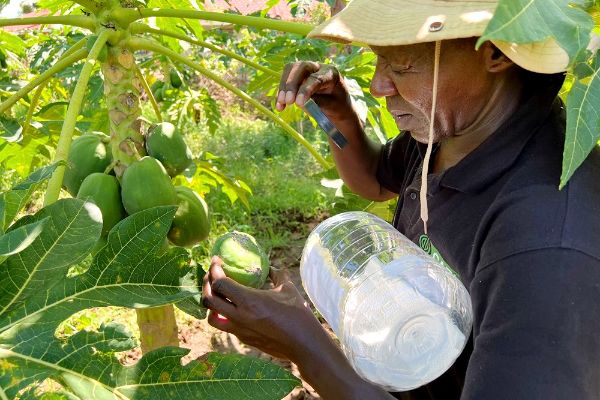Mali’s 2024-2025 agricultural season at risk amid widespread pest threats

The upcoming 2024-2025 agricultural season in Mali faces severe challenges due to significant phytosanitary threats, according to a briefing presented by the Minister of Agriculture during a cabinet meeting on Wednesday, November 13, 2024.
A government communiqué following the meeting outlined the critical situation affecting several key agricultural regions across the country.
Among the most affected areas are Kayes in the west, Ségou in the central region, and Timbuktu in the north, as well as locations such as Kita, Nara, and Nioro in the southwest.
These regions, essential for fruit and vegetable production, have seen extensive damage from tree locust infestations, which have decimated fruit trees and vegetable crops.
The destruction poses a direct threat to crop yields, endangering both Mali’s economy and national food security.
Compounding these challenges is an invasion of fall armyworms, which have targeted staple crops such as maize, millet, and sorghum.
The infestation extends across much of the country, from Kayes, Koulikoro, and Sikasso in the west and south, to Mopti, Gao, and Koutiala in the north.
The scale of this infestation threatens the entire agricultural production chain, underscoring the gravity of the risk to Mali’s food security.
The cotton sector, a cornerstone of the national economy, has also come under attack from jassids, pests known for their destructive impact on cotton plants.
However, swift intervention by the Malian Textile Development Company (CMDT) and specialized technical services has reportedly contained the damage, according to the Minister of Agriculture.
In response to these mounting threats, the Malian government has initiated a comprehensive action plan aimed at mitigating the impact of these pests.
The plan includes enhanced crop monitoring, the formation of village-based phytosanitary brigades, and advisory support for farmers.
The objective is to curb the spread of these harmful pests and safeguard the remaining crops.
The government’s measures seek to reduce agricultural losses in these strategically important regions and provide crucial support to farmers on the front lines of this crisis.
Ensuring Mali’s food security remains a pressing challenge, one that demands swift and coordinated action to protect livelihoods and the nation’s agricultural backbone.
About The Author
dailymailafric
I am an avid African news observer, and an active member of Daily Mail Africa.
I’m Passionate about staying informed on diverse topics across the continent,
I actively contribute to publishing on political, economic and cultural developments in Africa.



